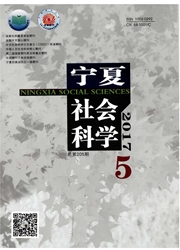

 中文摘要:
中文摘要:
精准扶贫是党中央为实现全面建成小康社会实施的重大举措。现阶段,精准扶贫已进入脱贫攻坚的关键时期。扶贫资源的供给成效直接关系着农村精准扶贫的可持续发展。传统的农村贫困治理模式注重政府单方扶贫资源的供给,存在诸多现实性难题,迫切需要创新精准扶贫资源供给方式。而公私合作制以其独特的优势,能够在有限资源的前提下实现供给效率的合理配置。探索精准扶贫的公私合作模式,宜在基础设施建设和基本公共服务领域,采取分类治理和差异化供给方式,并通过公私谈判和项目治理,利用市场化运作机制,实现利益共享与风险分配,增进绩效评估。改进精准扶贫公私合作模式的协同治理,需要厘清公私合作的权责关系,规范公私合作立法制度,创新公私合作争端处置方式,增进社会资本权能。
 英文摘要:
英文摘要:
Targeted poverty alleviation is major initiative on building moderately prosperous society by the Party Central Committee. Nowadays, targeted poverty alleviation has entered into key periods of poverty alleviation program. The supply of supporting the poor relates directly to the sustainable development of rural targeted poverty alleviation. Traditional rural poverty-alleviation model pay attention to government' s one side supply and has many realistic difficulties, so the resource supply of targeted poverty alleviation should be innovated. However, public-private partnership with its unique advantage, can realize the rational allocation of supply efficiency with limited resources. In order to explore public - private partnership of targeted poverty alleviation, classified governance and differentia- tion supply should be adopted in the construction of infrastructure and basic public service. The sharing of benefits and risk distribution can be realized through public and private negotiation, project management and markets running system. The performance evaluation should be promoted. In order to improve cooperative governance of public-private partnership of targeted poverty alleviation, relation- ship of responsibility and right of public - private cooperation should be clarified, legal system should be regulated, ways of dealing with dispute in it should be innovated, powers and functions of social capital should be promoted.
 同期刊论文项目
同期刊论文项目
 同项目期刊论文
同项目期刊论文
 期刊信息
期刊信息
